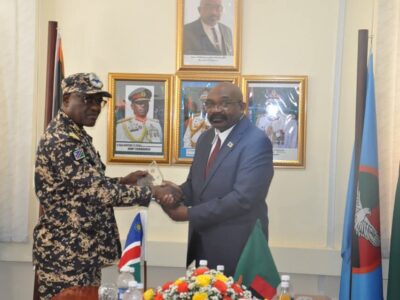Sixtus Mulenga, a player in the corporate space, has called on government to provide incentives to indigenous Zambians involved in large-scale manganese mining.
He said this could be done through export duty waivers, import duty exemptions and Value Added Tax (VAT) deferment on importation of plant machinery.
Mulenga said one of the major constraints affecting Zambia’s manganese mining sector was the high cost of exports due to the land-linked geographical position of the country.
He said this in his submission at a Mid-Year Economic Performance and 2024-2026 Medium Term Budget Plan in Lusaka meeting on Tuesday.
“The cost of exporting material is very expensive and the port charges are also very expensive that makes our exports or the business of manganese less competitive as compared to our colleagues or other countries who have seaports examples being Australia, South Africa and Gabon,” Mulenga said.
Read more: ZRA targets Artisanal, Small-Scale Miners for voluntary tax compliance
Mulenga said giving financial relief to citizens involved in large-scale Manganese mining would enable Zambia to compete favourably with other countries with seaport access.
He stressed the importance of government to provide a financial relief to indigenous Zambians so as to make it possible for them to conduct the business economically.
He pointed out that manganese could be used to produce Electric Vehicle (EV) batteries and enhance Zambia’s role in the green economy.
Mulenga also said government should improve the Tanzania-Zambia Railways (TAZARA) system to enable the Manganese mining companies to export their products in bulk and reduce the unit cost of production.
On the gemstone sector, Mulenga said the sector could provide significant contribution to the national treasury if critical measures to introduce “restricted” trade of gemstones were taken.
Mulenga added that government should introduce a system in which trade in rough gemstones such as emerald was restricted to companies that had mining licences and those that cut, polish and manufacture jewelry.
“These are the two categories to which trading in rough gemstones in the country should be restricted to and once we do that, it will bring in a lot of international investment because they will feel that the business is protected and has got a very good framework which they can operate in” Mulenga said.
WARNING! All rights reserved. This material, and other digital content on this website, may not be reproduced, published, broadcast, rewritten or redistributed in whole or in part without prior express permission from ZAMBIA MONITOR.












Comments